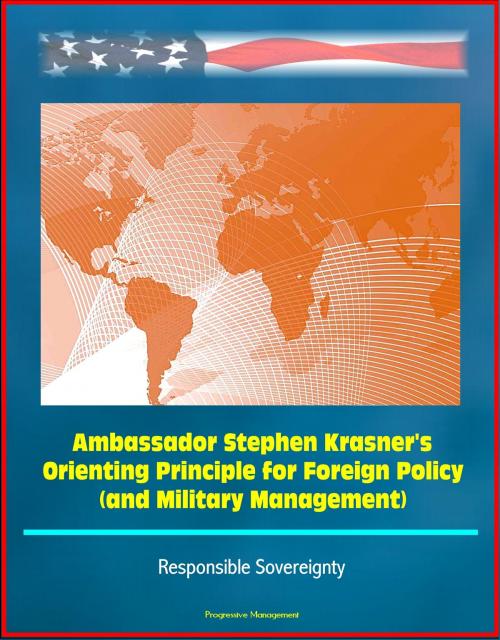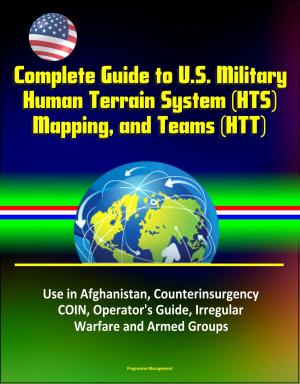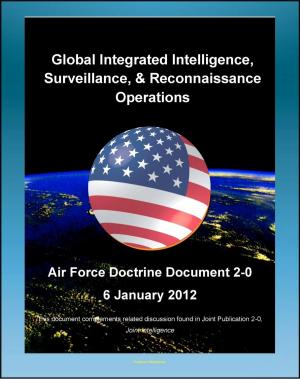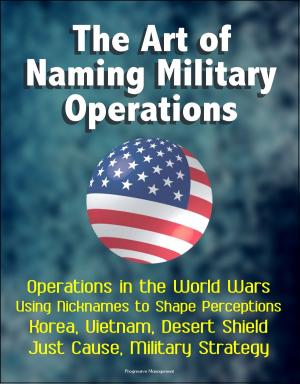Ambassador Stephen Krasner's Orienting Principle for Foreign Policy (and Military Management) - Responsible Sovereignty
Nonfiction, Social & Cultural Studies, Political Science, International| Author: | Progressive Management | ISBN: | 9781301722211 |
| Publisher: | Progressive Management | Publication: | March 5, 2013 |
| Imprint: | Smashwords Edition | Language: | English |
| Author: | Progressive Management |
| ISBN: | 9781301722211 |
| Publisher: | Progressive Management |
| Publication: | March 5, 2013 |
| Imprint: | Smashwords Edition |
| Language: | English |
The principal security threats of the past several centuries — war between or among major powers — do not have the urgency they once did. Two new types of threats have been introduced into the global security arena. Violent nonstate actors and other indirect political, economic, and social causes of poverty, social exclusion, corruption, terrorism, transnational crime, the global drug problem, and gangs are a few examples of "new" threats to global security and stability. Today, even more so than in the past, the evolving concept of national security implies the protection—provided through a variety of nonmilitary and military ways and means—of the popular interests that provide for the well-being of society. This broadened definition of the contemporary security problem makes the concept so vague as to render it useless as an analytical tool. The genius of Ambassador Stephen Krasner, however, helps solve the problem.
He contends that policymakers can aspire to developing grand strategies based on a rational ends, ways, and means formula. They rarely succeed, however. The most obvious alternative is no strategy at all, or a simple "wish list." Nevertheless, Krasner argues that reliance on one or more orienting principles is a second, better, alternative to an impossible to implement grand strategy or wish list. He thus proposes the concept of responsible sovereignty (legitimate governance) as the logical orienting principle for foreign policy and military management. In these terms, the nation-state and its governance (or lack thereof) becomes the primary (dependent) variable and defining element in operationalizing the notion of contemporary security. The concept of responsible sovereignty makes the resultant security paradigm intellectually manageable and analytically useful. If successful, the principle of responsible sovereignty would provide a viable foundation for a reasonable foreign policy, relevant military management, and a safer and more just world.
The principal security threats of the past several centuries — war between or among major powers — do not have the urgency they once did. Two new types of threats have been introduced into the global security arena. Violent nonstate actors and other indirect political, economic, and social causes of poverty, social exclusion, corruption, terrorism, transnational crime, the global drug problem, and gangs are a few examples of "new" threats to global security and stability. Today, even more so than in the past, the evolving concept of national security implies the protection—provided through a variety of nonmilitary and military ways and means—of the popular interests that provide for the well-being of society. This broadened definition of the contemporary security problem makes the concept so vague as to render it useless as an analytical tool. The genius of Ambassador Stephen Krasner, however, helps solve the problem.
He contends that policymakers can aspire to developing grand strategies based on a rational ends, ways, and means formula. They rarely succeed, however. The most obvious alternative is no strategy at all, or a simple "wish list." Nevertheless, Krasner argues that reliance on one or more orienting principles is a second, better, alternative to an impossible to implement grand strategy or wish list. He thus proposes the concept of responsible sovereignty (legitimate governance) as the logical orienting principle for foreign policy and military management. In these terms, the nation-state and its governance (or lack thereof) becomes the primary (dependent) variable and defining element in operationalizing the notion of contemporary security. The concept of responsible sovereignty makes the resultant security paradigm intellectually manageable and analytically useful. If successful, the principle of responsible sovereignty would provide a viable foundation for a reasonable foreign policy, relevant military management, and a safer and more just world.















